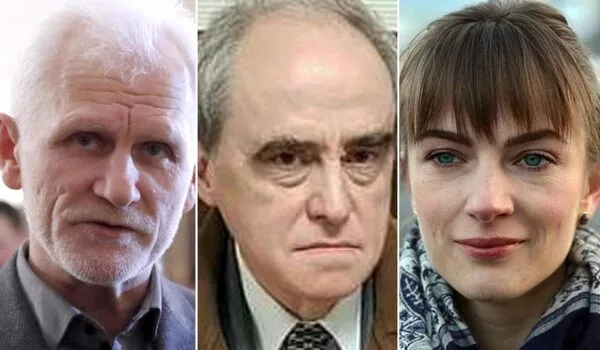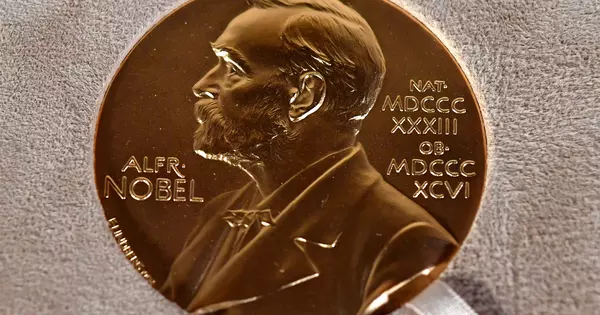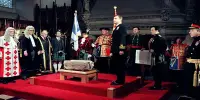The Norwegian Nobel Committee announced on Friday that the Nobel Peace Prize for 2022 has been awarded to Belarussian human rights advocate Ales Bialiatski, the Russian human rights organization Memorial, and the Ukrainian human rights organization Center for Civil Liberties (October 7).
According to the committee, the laureates represent civil society in their home countries, and “they have for many years promoted the right to criticize power and protect citizens’ fundamental rights.” They have made an outstanding effort to document war crimes, human rights violations, and power abuse. “They demonstrate the importance of civil society for peace and democracy,” according to the Nobel website.
The fact that the awardees are from Belarus, Ukraine, and Russia sends an implicit message about the ongoing conflict between Russia and Ukraine. “The Norwegian Nobel Committee wishes to honor three outstanding champions of human rights, democracy, and peaceful coexistence in Belarus, Russia, and Ukraine,” the committee stated.
According to the Guardian, the Nobel committee’s head, Berit Reiss-Andersen, responded to a question about whether the prize was “a timely birthday president” to Vladimir Putin on his 70th birthday, which falls on October 7. She stated that the prize is not intended for him and that “we always give a prize for something and to someone, not against anyone.”
The Norwegian Nobel Committee wishes to honor three outstanding champions of human rights, democracy, and peaceful coexistence in Belarus, Russia, and Ukraine. They Belarussian human rights advocate Ales Bialiatski, the Russian human rights organization Memorial, and the Ukrainian human rights organization Center for Civil Liberties
The three prize winners: Belarus’s Ales Bialiatski
According to the website, “Ales Bialiatski was one of the initiators of the democracy movement that emerged in Belarus in the mid-1980s.” Before 1991, when the former Soviet Union fell and independent countries emerged, many countries in Central Asia and Europe saw pro-independence movements. Belarus President Alexander Lukashenko has been in power since 1994 – when the post first came into being.Bialiatski is also credited with founding the organisation Viasna (Spring) in 1996 in response to the controversial constitutional amendments that gave the president dictatorial powers. Over time, Viasna evolved into a “broad-based human rights organisation that documented and protested against the authorities’ use of torture against political prisoners”, said the committee.
Having been imprisoned earlier for three years, he was arrested most recently after the large-scale demonstrations against the regime in 2020 and is still detained without trial. In 2020, he was one of the three recipients of the Right Livelihood Award by the Swedish Right Livelihood Foundation, sometimes referred to as the “Alternative Nobel”.
The committee lauded his efforts and said, “Despite tremendous personal hardship, Mr Bialiatski has not yielded an inch in his fight for human rights and democracy in Belarus”.

Russian human rights organisation, Memorial
According to the committee, the organization was founded in 1987 “by human rights activists in the former Soviet Union who wanted to ensure that the victims of communist regime oppression would never be forgotten.” The organization’s founders included Nobel Peace Prize laureate Andrei Sakharov, who received the award in 1954, and human rights advocate Svetlana Gannushkina. “Memorial is based on the idea that confronting past crimes is critical in preventing new ones,” the committee stated.
It has been described as the largest human rights organisation in Russia, and in the present day, it helped in gathering information on “the political oppression and human rights violations in Russia”, as per the committee’s press release, which called it “the most authoritative source of information on political prisoners in Russian detention facilities”.
In the last two years, it has been shut down and liquidated by the Russian Supreme Court, but the organisation responded at the time by saying, “Nobody plans to give up.”
Ukrainian human rights organisation, Center for Civil Liberties
The Center for Civil Liberties was established in Kyiv in 2007 “to advance human rights and democracy in Ukraine,” according to the committee. According to its website, the Centre is “one of the leading actors in Ukraine, influencing the formation of public opinion and public policy, supporting the development of civic activism, and actively participating in international networks and solidarity actions to promote human rights.”
Following Russia’s invasion of Ukraine in February 2022, the Center for Civil Liberties has been working to identify and document Russian “war crimes” against Ukrainian civilians, according to the committee.
















